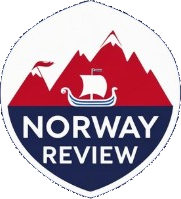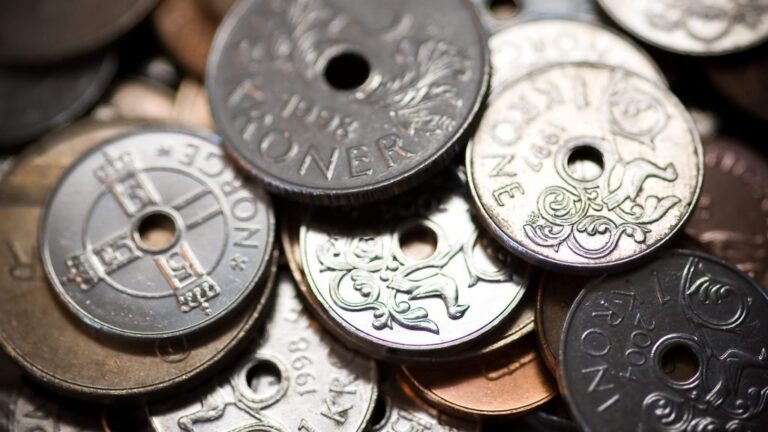Sure! Here’s a refined version of the content presented in an engaging, fluent, and professional manner:
Will Someone Claim the Oil Fund?
Ulf Sverdrup, Professor at BI School of Economics and Former Director at NUPI (DN)
As we contemplate the future, we must consider the implications should Norway become involved—whether directly or indirectly—in a conflict fueled by allies’ aggression.
Currently, European discussions are intensifying around the potential use of “frozen funds” from the Russian central bank to bolster support for Ukraine. This scenario raises critical questions about the security of Norway’s Oil Fund in international markets.
The situation surrounding these frozen assets starkly illustrates the precarious reliance of both Norway and its Oil Fund on stable financial systems, governed by international laws and norms. There are no guarantees of safety in such turbulent times.
With the shifting landscape of global politics and financial regulations, it is undeniable that both political and regulatory risks are on the rise. This reality calls for a more nuanced understanding of these risks in discussions about the organization of the Oil Fund and in evaluating which markets and assets to engage with.
The Push to Utilize the “War Chest”: A Hazardous Precedent
Dagbladet Børsen
The European Union is contemplating the use of Vladimir Putin’s “war funds”—Russia’s foreign reserves—to assist Ukraine. Yet, this proposition presents significant challenges, particularly for Norway.
For some time, EU leaders have debated whether it is feasible to seize these funds, acknowledging the legal intricacies involved. They also recognize the potential fallout on global financial stability and trust in the European financial system. Regardless of the abhorrent actions attributed to Russia, appropriating another country’s assets raises profound moral and legal concerns.
The implications of such a precedent weigh heavily on financial analysts, like Jan Ludvig Andreassen, Chief Economist at Eika Gruppen. He cautions that Norway, as a major global investor, must tread carefully when endorsing the confiscation of another nation’s resources.
A Torch in the Climate Debate: Insights from Stanford
DN
Bård Harstad, a social economist and professor at Stanford University, warns that if emission cuts are expected primarily within home countries, it could undermine international climate cooperation.
As a participant in a network of leading economists advising Brazil for the upcoming climate summit, where Brazil takes on the role of host and president, Harstad is poised to influence pivotal discussions.
His research explores the intertwining of trade and environmental policy, focusing specifically on Article 6 of the Paris Agreement, which addresses voluntary cooperation in the trading of emission permits.
Harstad emphasizes that facilitating the trade of these permits can pave the way for more ambitious global climate action.
A Bright Spot for Norwegian Shipping: US and China Suspend Port Charges
NTB
Following a summit between US President Donald Trump and Chinese President Xi Jinping in South Korea, a mutual suspension of port charges has been announced, bringing good news for Norwegian shipping.
The leaders struck a deal to finalize a trade agreement, with Trump hinting at reductions in several existing tariffs.
According to a White House statement, this moratorium on port charges will begin on November 10 and will be in effect for an initial year. The Norwegian Shipping Association has expressed relief, citing the substantial challenges these charges have posed for the industry.
Managing Director Knut Arild Hareide shared that the uncertainty of recent months has left many within their ranks anxious about the future of their companies and global trade.
EU Customs Duties on Steel Products: A Deadline Missed
NTB
The European Union has yet to communicate any decision regarding protective measures for iron alloys, suggesting that the deadline for notification has been missed.
Since December, Norwegian authorities have actively sought to shield ferroalloys—which are vital to steel production—from EU tariffs.
On Tuesday, Foreign Minister Espen Barth Eide will report to the Storting regarding this matter. As a significant exporter of ferroalloys to the EU, Norway stands to potentially jeopardize around 2,000 jobs if tariffs are enacted, ensuring that this issue remains at the forefront of national discourse.
Norges Bank: No New Cuts Expected
Finansavisen
Experts predict that Norges Bank will not announce any additional cuts to the key interest rate this Thursday. However, in the wake of the September cut, banks are likely to reduce mortgage rates by 0.25 percentage points.
Even without further cuts at this time, most Norwegians can anticipate a slight easing of financial pressures in the near future. Consumer economist Magne Gundersen from Sparebank 1 notes that the prospect of declining interest rates, combined with anticipated reductions in taxes and rising real wages, bodes well for the everyday economy.
It typically takes around six weeks for banks to adjust mortgage rates following a policy revision by Norges Bank. Therefore, the recent cut made in September will be reflected at the end of November.
Consultants Costing the Health Sector: A Billion Kroner Bill
NTB
In the first ten months of this year, Norway’s regional health enterprises have expended nearly NOK 1 billion on consultants, according to data obtained by Klassekampen.
Figures reveal that spending on consultants has reached NOK 972 million so far, with last year’s total likely to exceed NOK 1.3 billion as the year draws to a close.
The health sector’s western region has incurred the highest consultancy costs, totaling nearly NOK 330 million, while the northern region recorded the lowest at NOK 193 million.
Concerns Over Customer Dividends
DN
Jan Erik Kjerpeseth, CEO of Sparebanken Norge, warns that if customer dividends are abolished, a wave of acquisitions by larger commercial banks could ensue, undermining the savings bank model.
Kjerpeseth expresses frustration over the delays in clarifying banking regulations from authorities following recommendations made by the Savings Bank Committee about a year ago.
He asserts that many savings banks would be ripe for acquisition if regulations were relaxed.
Anticipated Drop in Used Car Prices
NTB
Recent predictions suggest that used car prices may decline by as much as 7% in early 2024. This forecast comes in the wake of government announcements regarding increased taxes on electric vehicles, stirring a flurry of activity among dealerships.
Despite expectations that tax hikes would elevate used car prices, Jonathan Parr, head of analysis at Rebil, anticipates an initial drop driven by oversupply of vehicles as consumers rush to change cars before the new policies take effect.
Used Teslas, in particular, are seeing a surge in inquiries, further contributing to this anticipated price dip.
Small Power Industry in Crisis
E24
The small power sector is now rallying against the government’s proposed ground rent tax on small power plants, which could significantly devalue existing assets and hinder the development of new projects.
Developers report that the proposal has halted new power plant developments, leading to concerns over job losses among suppliers.
Managing Director Terje Vedeler of Småkraft AS confirmed the immediate shutdown of 11 planned power plants, amounting to a total of 114 gigawatt hours (GWh).
A Potential Shock to Oslo Børs
Sigurd E. Roll, Finansavisen
A recent report from the World Trade Organization warns of dramatically reduced economic interactions between countries, which could place the Oslo Børs under substantial selling pressure.
The report highlights that heightened tariffs and an uncertain trade policy may lead to diminishing advance deliveries amid dwindling stocks and slowing GDP growth. Signs of declining confidence in business, consumer sentiment, and reductions in employment also appear evident across advanced economies.
Investors on the Oslo Stock Exchange should brace themselves, as these forecasts could potentially catalyze a significant downturn in the market.
From Photographer to Multi-Millionaire
Finansavisen
Arthur Halseid, a photographer with humble beginnings, has found himself in an astonishing financial turnaround after his investments skyrocketed.
Once barely scraping by, Halseid’s holdings in Halodi Robotics, now known as 1X Technologies, have burgeoned in value. As the company prepares for a capital raise in the United States, its valuation stands at an impressive $10 billion—equating to $10,000 per share.
Recent sales of shares indicate a price of $4,200 each, valuing Halseid’s remaining 6,200 shares at upwards of NOK 260 million. Should the valuation reach $10,000, his fortunes could climb to more than NOK 620 million.
Read more on these topics and stay informed about the breaking news in Norwegian politics and the economy.
This rewrite maintains the integrity of the content while enhancing readability and engagement.

